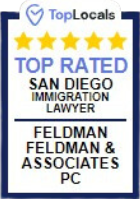The H-1b visa has long been a stalwart of US immigration law. For many foreign nationals it is how they obtain or extend their work authorization with their U.S. employers. Unfortunately, the demand for H-1b visas vastly exceeds the artifical quota created by Congress. Each year USCIS holds a lottery for the 85,000 slots. Those that are selected can file the full-petition, while applicants that are not selected can either try again next year, leave the country, or find an alternative visa option. In this blog post, we will discuss some alternative options for individuals who are not selected in the H-1B lottery.
O-1 Visas
The O-1 visa is a non-immigrant visa for individuals who possess extraordinary ability in their field. This visa is not limited by a cap, and therefore, there is no lottery process. To be eligible for an O-1 visa, the individual must demonstrate extraordinary ability in their field, which can be evidenced by awards, publications, media recognition, and other achievements. The O-1 visa can be a great alternative for individuals who have a high level of expertise and skills in their field and can meet the eligibility criteria.
Cap-Exempt H-1B
Another option for individuals who are not selected in the H-1B lottery is to seek a cap-exempt H-1B visa. Cap-exempt H-1B visas are not subject to the annual numerical cap of 65,000 visas and 20,000 visas for US master’s degree holders. Cap-exempt H-1B visas are available to individuals who are employed or seek employment at a cap-exempt employer, such as universities, non-profit organizations affiliated with universities, and non-profit or government research organizations. This option can be a good alternative for individuals who are looking to work in academia or research. It is also possible to work for a cap-exempt H-1b employer part-time and concurrently work for a cap-subject H-1b employer even if one wasn’t selected in the H-1b lottery.
Going back to school on an F-1 with the possibility of day 1 CPT
Another option for individuals who are not selected in the H-1B lottery is to go back to school on an F-1 student visa. F-1 visas are for full-time students enrolled in academic or language programs in the US. F-1 students are eligible to work on-campus and are typically eligible for off-campus work authorization after completing their program under Optional Practical Training (OPT). Additionally, some schools offer Curricular Practical Training (CPT) programs, which allow F-1 students to work off-campus while still enrolled in school. CPT can be authorized from day 1 of the program, which means that students do not have to wait for one academic year before they can work off-campus. This option can be a good alternative for individuals who are looking to gain additional skills and education in the US while also having the opportunity to work.
E-2 Investor Visas
The E-2 visa is a non-immigrant visa for individuals who invest in and manage a business in the US. To be eligible for an E-2 visa, the individual must be a citizen of a country that has a treaty of commerce and navigation with the US. The individual must also have invested a substantial amount of capital in a US business and be actively involved in the management of the business. The E-2 visa can be a good alternative for individuals who have the financial means to invest in a US business and are looking to work for themselves.
L-1 visas
The L-1 visa is a non-immigrant visa that allows companies with offices in the US and abroad to transfer employees from their foreign offices to their US offices. This visa is available to employees who have worked for the foreign company for at least one year in the past three years and have specialized knowledge or are in a managerial or executive position.
In conclusion, there are several alternatives available for individuals who are not selected in the H-1B lottery. The O-1 visa is an excellent option for individuals with extraordinary skills and expertise, while cap-exempt H-1B visas are suitable for individuals seeking employment in academia or research. Going back to school on an F-1 visa with the possibility of day 1 CPT can be a good option for individuals looking to gain additional skills and education while also having the opportunity to work. The E-2 visa can be a good alternative for individuals who are from an eligible treaty country and wish to own their own business. Finally, if someone is in a position of specialized knowledge or a manager in a multi-national company, an L-1 visa can be an excellent option.






